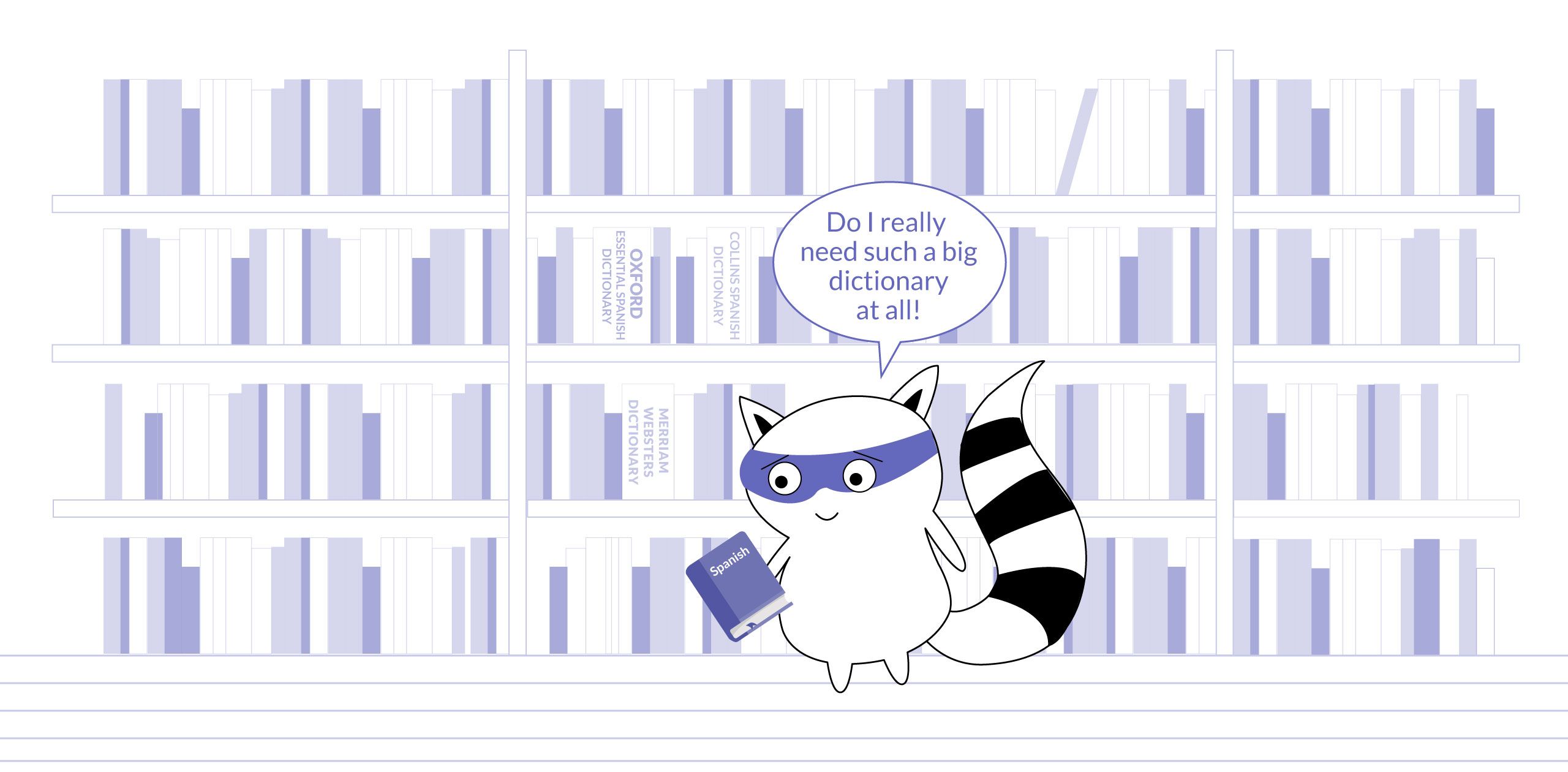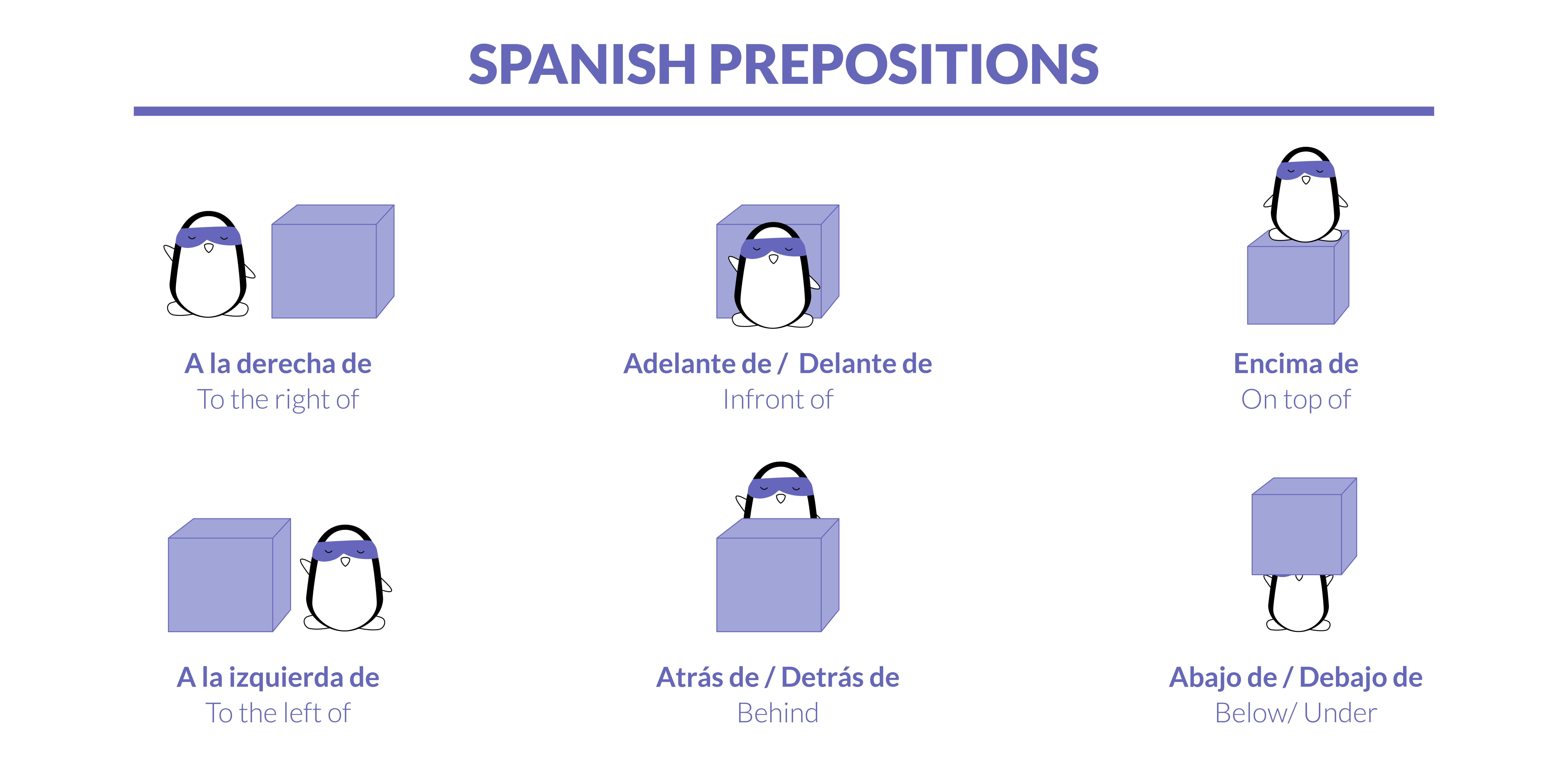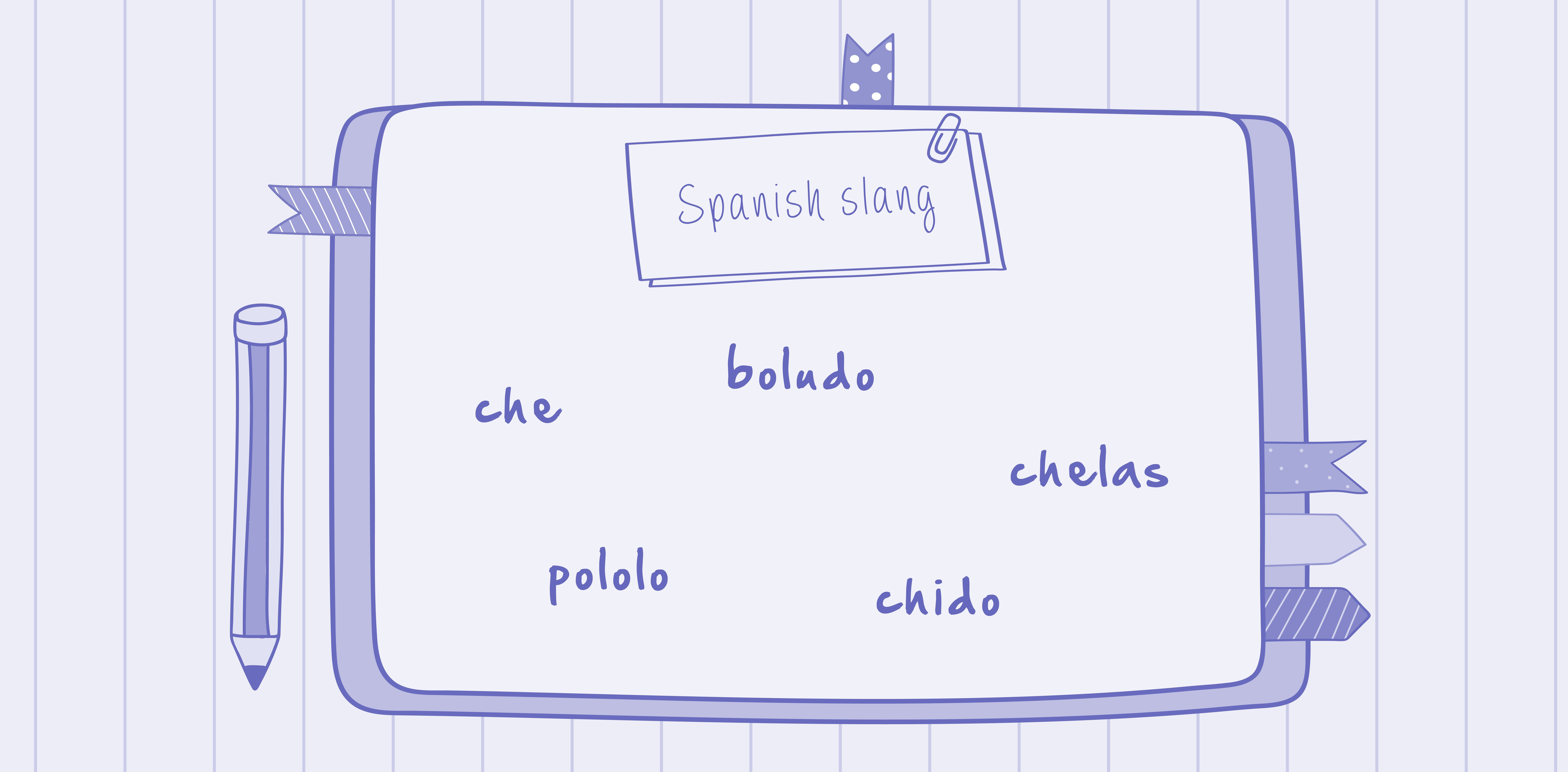
Learning a language extends beyond mastering grammar rules and constructing correct sentences; it's about immersing oneself in a new culture and navigating through the social intricacies of its speakers.
Nowhere is this more apparent than in the world of slang, which often serves as a gateway to the heart of a culture. In today's adventure, we unravel the vibrant and sometimes baffling world of Spanish slang.
Whether you're a Spanish language learner, a globetrotter looking to brush up on local lingo, or simply a linguistic enthusiast, understanding slang and idiomatic expressions can elevate your language skills — comprehension and expression in conversation.
Join us as we explore why slang matters and provide a curated collection of slang phrases from various Spanish-speaking countries.
Learn Spanish with Langster
What Is Slang and Why Is It Important?
Spanish slang can be defined as informal or colloquial language that is typically used in everyday conversation and varies widely from region to region. It includes words, phrases, and expressions that may not be found in formal language educational resources but are essential for communicating naturally with native speakers.
Understanding Spanish slang words can be the difference between sounding like a textbook and blending in with the locals. It signifies familiarity, eases social interactions, and can often reflect regional cultures, humor, and values.
Beyond that, knowing slang can help you decipher movies, music, online content, and dialogues out in the wild streets of Spanish-speaking Latin America and Spain.
How to Learn Spanish Slang
Mastering Spanish slang is a thrilling journey into the heart of Spain and other Spanish-speaking countries, filled with unexpected discoveries and meaningful connections. It's an endeavor that requires curiosity, flexibility, and a willingness to engage directly with native speakers and their media.
Below are five comprehensive strategies with detailed examples to help you immerse yourself in the world of each Spanish slang word and truly understand its nuances.
Engage with Native Speakers
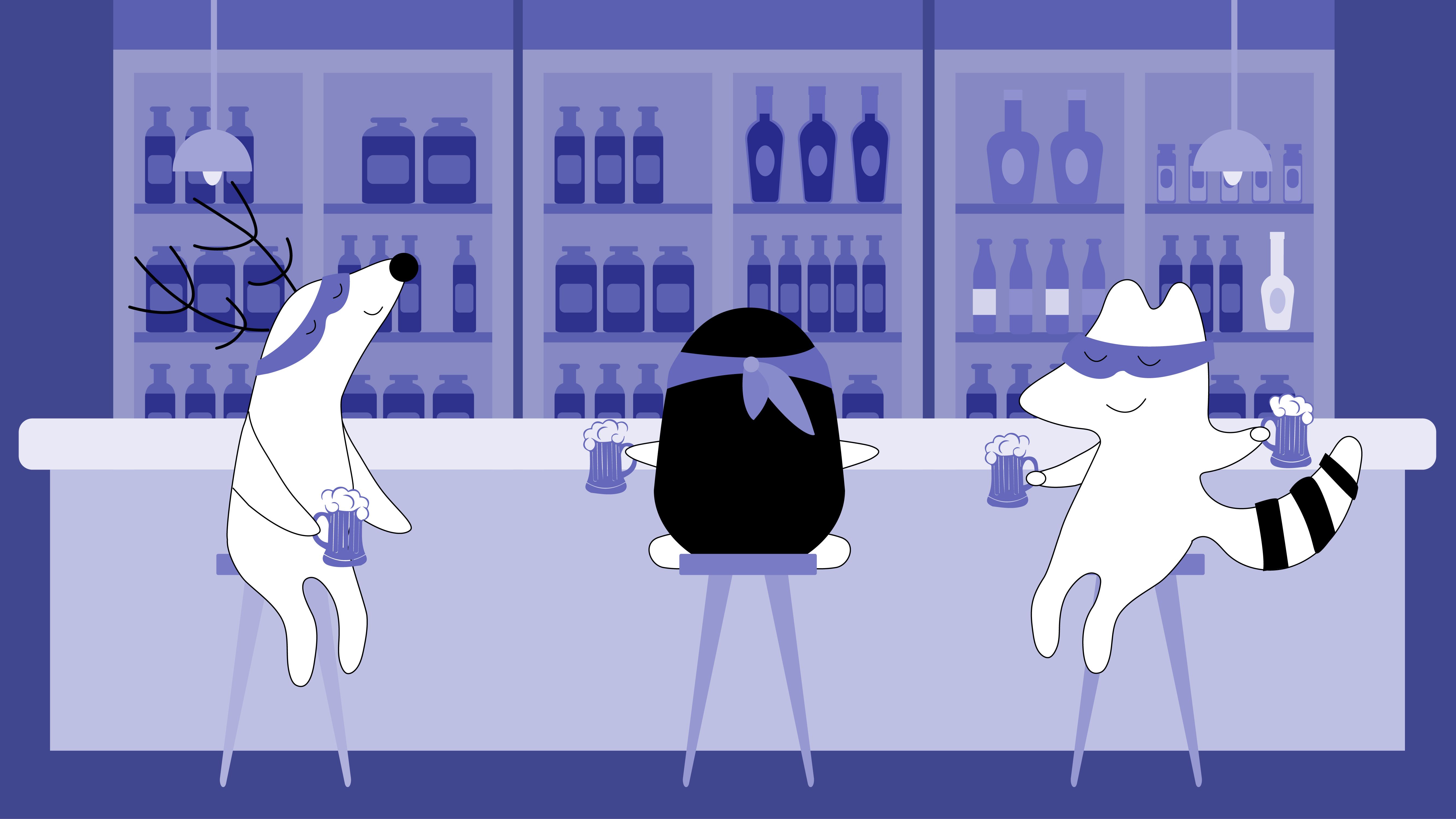
The most effective way of learning Spanish slang is to converse with native speakers.
Language exchange meetups or online platforms such as Tandem and HelloTalk offer opportunities to chat with natives who are keen to share their language and culture. For instance, you might learn that tío or tía in Spain goes beyond meaning uncle or aunt, also being used colloquially to refer to a friend.
Watch Movies and TV Shows
Spanish-language cinema and television offer a goldmine of slang expressions. Platforms like Netflix feature a variety of shows and movies from different Spanish-speaking countries. Watching La Casa de Papel (Money Heist), you might hear molar, which means "to like" in Spain. Subtitles can be a helpful guide through slang-filled dialogues.
Listen to Music and Podcasts
Music is a universal language and a fun way to learn slang. By listening to artists from different Spanish-speaking countries, you can pick up on regional slang and expressions. For instance, the Puerto Rican reggaeton scene includes words like gato, which is slang for someone who is clever or sly (also true for other Latin American countries).
Podcasts geared towards Spanish learners, such as Notes in Spanish, often discuss slang and its contexts.
Use Social Media and YouTube
Social media platforms like Twitter, Instagram, and YouTube are treasure troves of real-time language and slang. Following Spanish-speaking influencers, comedians, and educators can expose you to the casual, everyday language of native speakers.
YouTubers like Superholly provide explanations of Mexican slang phrases like ¡Qué padre! which means "That's awesome!" ultimately boosting your Spanish vocabulary.
Read Blogs, Comics, and Magazines
Immersing yourself in written Spanish that's aimed at a younger, more modern audience can introduce slang in context.
Online blogs, local magazines, or comics are less formal and more likely to use slang. Websites like Jergas de Habla Hispana offer insights into slang from various countries, teaching you phrases like pura vida — a common greeting in Costa Rica meaning "pure life" or "all's good."
By incorporating these strategies into your learning regimen, you're not just studying a language, you're experiencing it. Keep a notebook for new slang you encounter, practice using it when appropriate, and don't be afraid to make mistakes.
Remember, learning slang is as much about learning a language as it is about enjoying and understanding the culture behind it.
10 Slang Phrases from Spain
Exploring the slang of Spain and its formality is like taking a cultural tour without leaving your chair. The vibrant and dynamic use of language reveals the unique personality and humor of its people.
Below, we've compiled ten popular Spanish slang phrases that will give you a taste of everyday conversation in Spain. With these expressions, you'll not only understand Spanish speakers better but also sound more like a local when you use them in the right context. Here we go!
1. Guay — Cool
Guay is equivalent to "cool" in English and is used to describe something that is good, interesting, or fashionable.
Spanish
English
Ese coche es muy guay.
That car is very cool.
2. Vale — Okay
Vale is often used in Spain to agree with someone or to acknowledge what someone has said.
Spanish
English
Nos vemos a las ocho, ¿vale?
We'll meet at eight, okay?
3. Flipar — To be amazed
Flipar is used when something leaves you amazed or in disbelief, either positively or negatively.
Spanish
English
Vas a flipar con la película.
You're going to be amazed by the movie.
4. Tío/Tía — Guy/Girl
While it literally means “uncle/aunt,” in slang, it is used to refer to a friend or person in a casual way.
Spanish
English
Tío, ¿qué pasa?
Dude, what's happening?
5. Molar — To like
Molar expresses liking someone or something. It's a cool way of saying that you find something appealing.
Spanish
English
Me mola tu estilo.
I like your style.
6. Pasta — Money
In Spain, pasta is a colloquial way to refer to money, akin to saying "dough" or "bucks" in English.
Spanish
English
No puedo, no tengo pasta.
I can't, I don't have money.
7. Chaval — Kid/Young person
Chaval is used to talk about a young person, often with a neutral or slightly informal connotation.
Spanish
English
Los chavales de hoy en día están todo el día con el móvil.
Kids these days are on their phones all the time.
8. Quedar — To meet up
While quedar can mean to stay or remain, in slang, it's often used to talk about meeting up with someone.
Spanish
English
¿Quedamos mañana?
Shall we meet up tomorrow?
9. Chulo — Cool or Pretty
Chulo can be used to describe something or someone as cool, cute, or pretty, often in appearance.
Spanish
English
¡Qué chulo está tu jardín!
Your garden looks so cool!
10. Cotilla — Gossiper
A cotilla refers to someone who loves gossiping or knowing everything about everyone's business.
Spanish
English
No seas cotilla y déjame en paz.
Don't be a gossiper and leave me alone.
Familiarizing yourself with these phrases will not only enhance your understanding of Spanish as it's spoken on the streets of Spain but will also enrich your interactions, making them more authentic and enjoyable.
10 Slang Phrases from Argentina
Exploring the vibrant slang of Argentina offers a unique lens through which to appreciate the country’s rich culture and spirited identity. Argentine Spanish, or Rioplatense Spanish, is famous for its distinctive intonation, vocabulary, and use of voseo.
By understanding these common slang phrases, you'll be better equipped to connect with locals, enjoy Argentine media, and appreciate the nuances of everyday communication.
Here are ten essential Argentine slang phrases that will help you sound like a native speaker:
1. Che — Hey/Friend
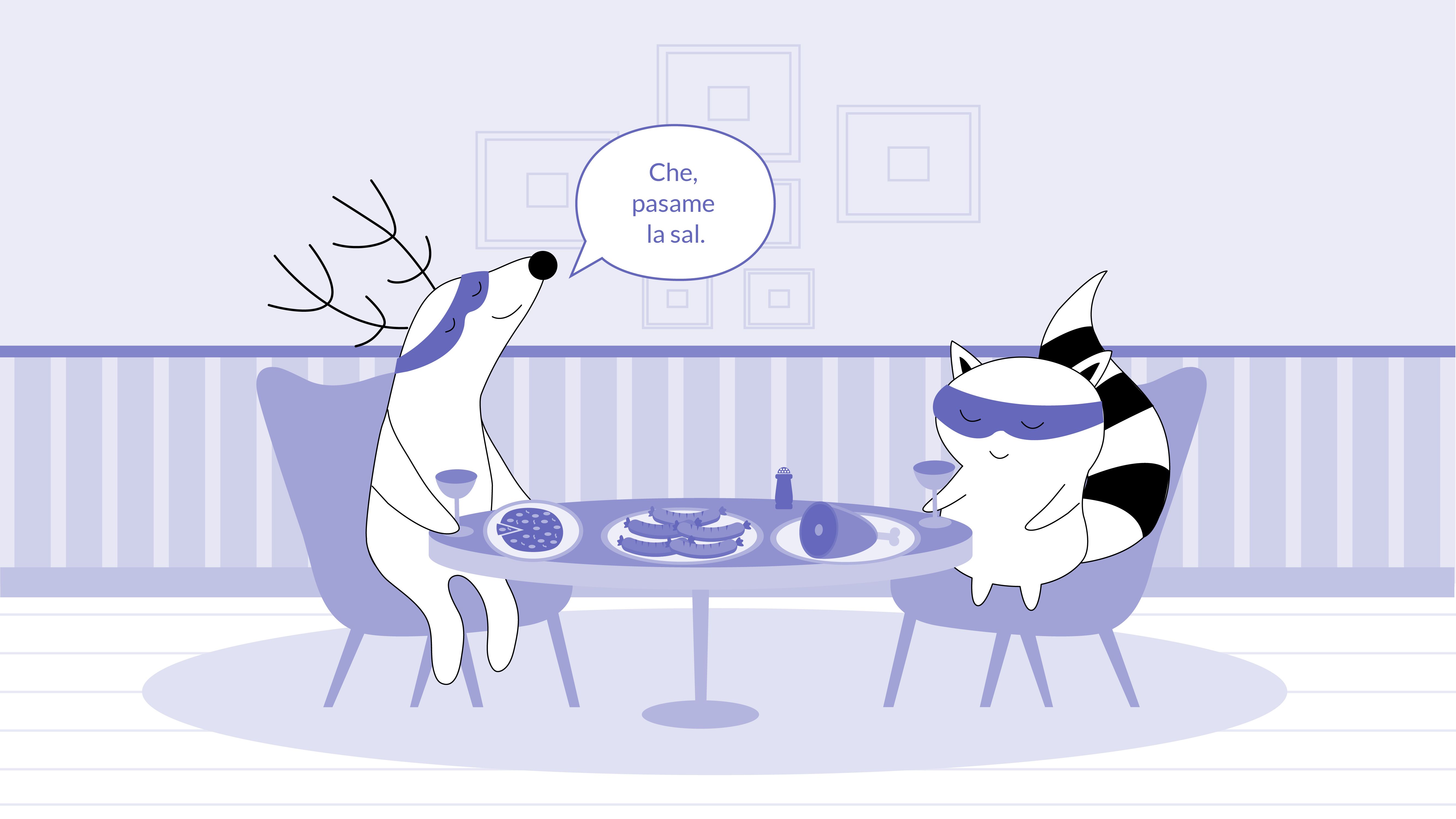
Che is an all-purpose term used to call someone's attention or refer to a person whose name you might not know. It's akin to saying "hey" or "friend" in English.
Spanish
English
Che, ¿cómo estás?
Hey, how are you?
2. Boludo/a — Fool/Dude
While it can be derogatory, boludo is often used among friends in a playful manner, similar to "dude" or "mate" in English.
Spanish
English
¡Hola, boludo! ¿Todo bien?
Hey dude! All good?
3. Copado/a — Cool/Awesome
Used to express approval or excitement, copado means something is cool or awesome.
Spanish
English
Esa película fue re copada.
That movie was really awesome.
4. Fiaca — Laziness
Fiaca refers to the feeling of being lazy or not wanting to do anything.
Spanish
English
Hoy tengo una fiaca enorme.
Today I'm feeling really lazy.
5. Chabón/a — Guy/Girl
Chabón is a colloquial way to refer to a man or boy, and chabona for a woman or girl, similar to "guy" or "girl" in English.
Spanish
English
¿Viste al chabón see?
Did you see that guy?
6. Quilombo — Mess/Chaos
A word that reflects disorder or chaos, quilombo is used to describe a situation that’s gotten out of hand.
Spanish
English
Este lugar es un quilombo.
This place is a mess.
7. Birra — Beer
A borrowing from the Italian birra, it's a casual way to refer to beer.
Spanish
English
Vamos a tomar unas birras.
Let’s have some beers.
8. Mina — Woman
Mina is a colloquial term for a woman or girl.
Spanish
English
Esa mina es muy simpática.
That woman is very nice.
9. Laburar — To work
Coming from the Italian lavorare, laburar is a slang term for working.
Spanish
English
Mañana tengo que laburar temprano.
I have to work early tomorrow.
10. Bondi — Bus
Bondi is a local term used to refer to buses, mainly in Buenos Aires.
Spanish
English
Tomé el bondi equivocado.
I took the wrong bus.
10 Slang Phrases from Chile
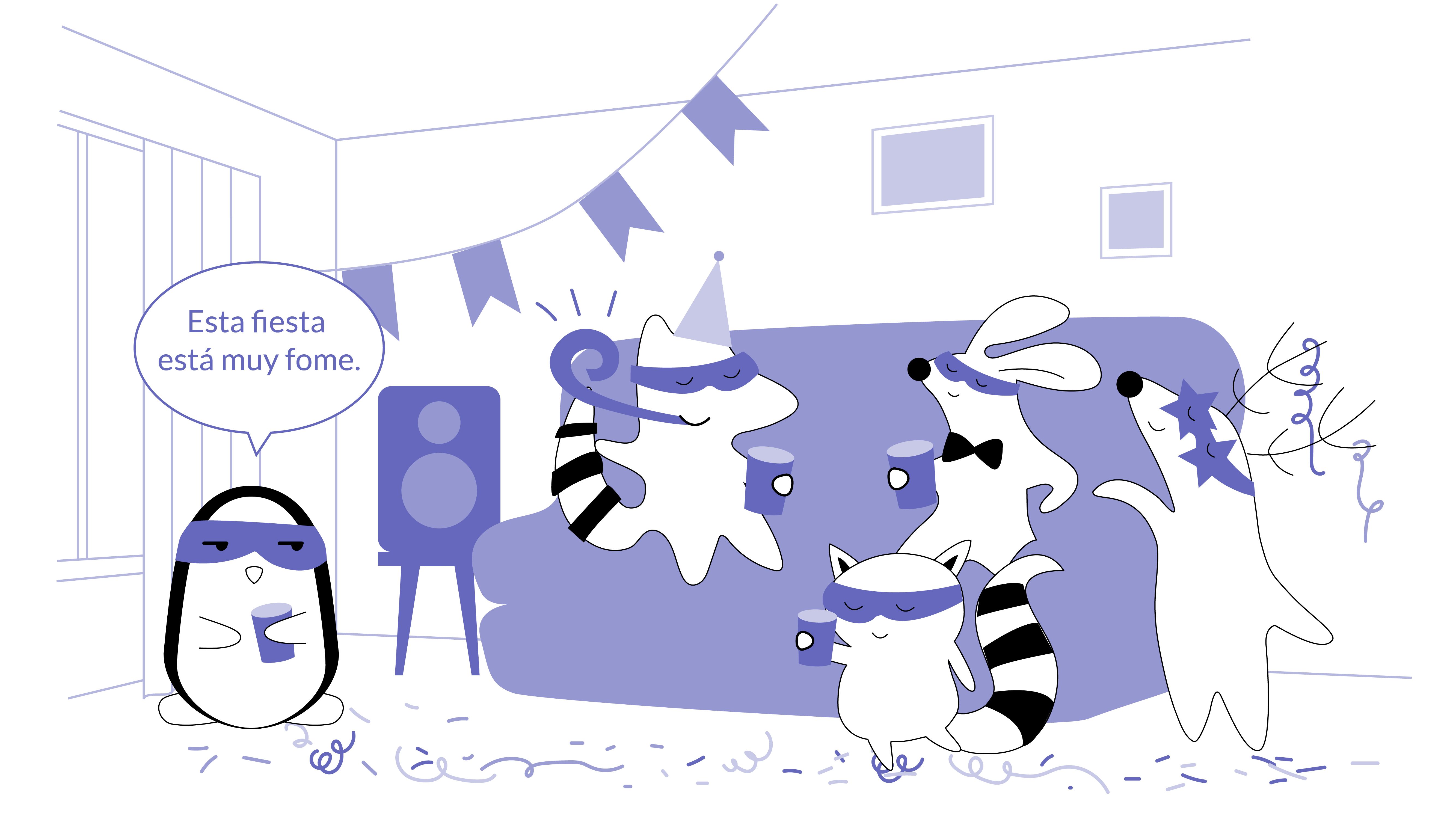
Chilean Spanish stands out for its unique set of slang terms that can puzzle even fluent Spanish speakers from other countries. Known for its rapid pace and distinct pronunciation, Chilean slang is an integral part of the country's identity, reflecting its culture and lifestyle.
Getting familiar with these slang words and phrases will not only enhance your understanding of local expressions but also deepen your connection with Chilean people. Here are ten essential Chilean slang phrases that will get you one step closer to sounding like a local.
1. Po — Well/Then
Po is a colloquial addition to the end of sentences for emphasis, deriving from pues. It's often used to reinforce what's being said.
Spanish
English
Sí, po, claro que voy.
Yes, of course, I'm going.
2. Cachai — Do you understand?
Derived from the English "catch," cachai is used at the end of sentences to ask if someone understands or agrees with what's been said.
Spanish
English
Es como un juego, cachai?
It's like a game, you know?
3. Al tiro — Right away
Al tiro is a Spanish slang expression that means “immediately” or “right now,” indicating that something will be done without delay.
Spanish
English
Voy al tiro.
I'll go right away.
4. Bacán — Cool/Awesome
Bacán is used to express that something or someone is cool or fantastic.
Spanish
English
Tu nueva bicicleta es bacán.
Your new bike is awesome.
5. Fome — Boring
Fome is a term for something uninteresting or dull.
Spanish
English
Esa película fue tan fome.
That movie was so boring.
6. Pololo/a — Boyfriend/Girlfriend
Popolo and popola are the terms used to refer to a boyfriend or girlfriend, respectively.
Spanish
English
Mi polola vendrá a cenar esta noche.
My girlfriend will come over for dinner tonight.
7. Carrete — Party
Carrete refers to a party or social gathering.
Spanish
English
Vamos al carrete de Juan.
Let's go to Juan's party.
8. Luca — 1000 Chilean pesos
Luca is the slang term for 1000 Chilean pesos, often used in the context of pricing or spending.
Spanish
English
Me costó cinco lucas.
It cost me five thousand pesos.
9. Weón/a — Dude/Guy or Jerk
Weón can be a complex term as it can refer fondly to a friend or be used derogatorily, depending on the context.
Spanish
English
Oye weón, ven aquí.
Hey dude, come here.
10. La raja — Amazing/Awesome
La raja is a very informal phrase used to describe something as amazing or great.
Spanish
English
El concierto estuvo la raja.
The concert was amazing.
10 Slang Phrases from Mexico
Mexican Spanish is as rich and diverse as its culture, blending indigenous languages with Spanish and even English to create a vibrant tapestry of expressions unique to Mexico.
From the bustling streets of Mexico City to the vibrant markets of Oaxaca, slang in Mexico serves as a binding thread that not only simplifies communication but also conveys warmth and camaraderie among its speakers.
Here is a collection of ten different Spanish slang words and phrases that offer a glimpse into the everyday life and spirited essence of Mexico's people:
1. ¡Qué onda! — What’s up?
¡Qué onda! is a versatile greeting in Mexico, equivalent to saying "What's up?" or "How's it going?" in English.
Spanish
English
¡Qué onda! ¿Cómo estás?
What's up? How are you?
2. Güey — Dude/Guy
Güey (sometimes spelled as 'wey') is a Mexican slang word for "dude" or "guy." Although it can be used in a friendly manner, context is key, as it can also be offensive.
Spanish
English
No manches, güey.
No way, dude.
3. Chido — Cool/Awesome
Chido is the Mexican slang for something that is cool or awesome.
Spanish
English
Ese concierto estuvo muy chido.
That concert was really cool.
4. Mande — What?
Used as a polite way of saying "What?" or "Pardon me?" when you didn't understand something. It literally means "Command me."
Spanish
English
Mande, no entendí lo que dijiste.
What? I didn't understand what you said.
5. Neta — Really
This slang word is used to express that something is absolutely true or to ask for the truth.
Spanish
English
¿Neta te ganaste la lotería?
Did you really win the lottery?
6. Carnal — Brother
Carnal is a term for a close friend or brother. It literally means "flesh" but is also understood as "blood."
Spanish
English
Él no es solo mi amigo, es mi carnal.
He's not just my friend; he's my brother.
7. Chela — Beer
Chela is a casual term for beer.
Spanish
English
Vamos por unas chelas este fin.
Let’s go for some beers this weekend.
8. Crudo/a — Hangover
Crudo or cruda, depending on gender, means "hangover." It can also mean "raw."
Spanish
English
Estoy crudo de la fiesta de anoche.
I have a hangover from last night's party.
9. Chavo/a — Kid
Chavo (male) or chava (female) is used to refer to a young person, similar to "kid" or "youngster" in English.
Spanish
English
Ese chavo es nuevo en la escuela.
That kid is new at school.
10. Padre — Cool/Awesome
Padre is a slang term that means "cool" or "awesome," despite its literal translation being "father."
Spanish
English
Tu carro está muy padre.
Your car is really cool.
10 Slang Phrases from Colombia

Colombian Spanish, known for its clear pronunciation and melodious tone, also boasts a vibrant and colorful slang lexicon. These expressions are a testament to the country's diverse culture, reflecting not just local traditions and humor, but the warmth and friendliness of its people.
By exploring these common Colombian slang phrases, you can get a taste of the everyday lingo and, perhaps, a deeper understanding of its rich cultural fabric.
1. Parce — Friend/Buddy/Pal
Parce is the Colombian slang for "friend" or "buddy."
Spanish
English
Hola, parce, ¿cómo vas?
Hey, buddy, how's it going?
2. Chevere — Cool/Awesome
Chevere is a term used to describe something that's cool or awesome.
Spanish
English
Esa fiesta estuvo muy chevere.
That party was really cool.
3. Bacano — Cool/Awesome
Similar to chevere, bacano is another way of saying something is cool or awesome.
Spanish
English
¡Qué carro tan bacano!
What a cool car!
4. Parche — Group of Friends/Gathering
Parche refers to a group of friends or a social gathering.
Spanish
English
Vamos al parche en la casa de Juan.
Let's go to the gathering at Juan's house.
5. Guayabo — Hangover
Guayabo is the word for "hangover."
Spanish
English
Tengo un guayabo terrible esta mañana.
I have a terrible hangover this morning.
6. Chévere — Great
Chévere is another way of saying something is great or fantastic.
Spanish
English
La música de esa banda es muy chévere.
That band's music is great.
7. Chino/a — Child/Kid
In Colombia, chino (male) or china (female) can be used to refer to a child or young person.
Spanish
English
Mira ese chino jugando fútbol.
Look at that kid playing soccer.
8. Tombo — Cop
Tombo is slang for police officer.
Spanish
English
Cuidado, allá viene un tombo.
Be careful, here comes a cop.
9. Rumba — Party
Rumba means party or good music and dance.
Spanish
English
Este fin de semana hay rumba en mi casa.
This weekend there's a party at my house.
10. Sapo — Snitch
Sapo literally means "frog" but is used to refer to a nosy person or a tattler.
Spanish
English
No seas sapo, déjalos en paz.
Don't be a snitch, leave them alone.
The Bottom Line
In conclusion, the most common Spanish slang words offer more than just a gateway to enhanced communication; they provide a colorful mosaic of cultural insights, humor, and friendship. Each phrase and expression carries the essence of the people and place from which it originates, reflecting the diverse yet unified spirit of the Spanish-speaking world.
Whether you're mesmerized by the melody of Colombian Spanish or intrigued by the unique slang of Mexico, understanding these expressions can deeply enrich your language learning journey and cultural experience.
And, to continue learning, why not download Langster to keep exploring the depths of the Spanish language and culture?
Learn Spanish with Langster







